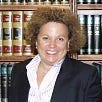The Potential Perils of Offshoring Call CentersThe Potential Perils of Offshoring Call Centers
A proposed bill in the House of Representatives would create powerful incentives for companies to use U.S.-based agents.
February 7, 2012

A proposed bill in the House of Representatives would create powerful incentives for companies to use U.S.-based agents.
Most people dislike off-shore call centers. In fact, the largest telecommunications companies know that Americans dislike off-shore call centers with such intensity that those largest companies often use the repatriating of off-shore call centers as an incentive to encourage regulatory bodies to approve otherwise less than desirable combinations (read: AT&T's recent unsuccessful attempt to acquire T-Mobile). Much to the dismay of those of us who have reached out and touched one of these call centers, what may have been saved by the companies providing overseas call center support has been lost in customer satisfaction. In response to a number of factors, but predominantly the general lack of customer satisfaction combined with the very tight American economy, on December 7th, Congressmen Timothy Bishop (D., NY) and David McKinley (R., WV), along with 16 additional cosponsors, introduced the U.S. Call Center and Consumer Protection Act (HR 3596) in the House of Representatives.
The bill contains some interesting and toothy provisions. Specifically, terms will apply to any company that 1) employs either 50 or more full time call center employees, or 2) closes a call center or eliminates the operations of at least 30% of a call center's call volume and relocates those operations to a location outside of the United States. In the event of such a move, the employer must provide at least 120 days' notice to the Secretary of Labor prior to any such move. Failure to comply with this notice provision can trigger civil penalties of up to $10,000/day.
In addition, the Secretary of Labor must also maintain a public list of these companies, with each entity remaining on the list up to 3 years after each such identification. More dramatically, and with only limited exceptions, any entity on the list will be ineligible for any direct or indirect federal grants or guaranteed loan programs for a period of 5 years from that time they were added to the list. The bill also contains a provision requiring federal and state agencies to give preference in civilian or defense contracting to U.S. companies not on the list.
Also under the bill, call center agents located outside of the United States must disclose their physical locations at the beginning of each call, and must transfer a call back to a U.S. based call center upon customer request. This issue has been raised before, although I suspect that the ineligibility for federal grants and/or the preferential treatment offered to those entities that do not move local call centers off shore may draw the most attention.
The bill has been submitted to the Energy and Commerce Committee's Commerce, Manufacturing and Trade Subcommittee with a growing bipartisan group of co-sponsors (as of 2/3/12, there are 45 from both sides of the aisle). With the support of the 700,000 members of the Communications Workers of America, there’s a good chance that the bill might see the light of day. According to Oliver Longwell, Congressman Bishop's Communications Director, "next steps include both securing additional co-sponsors in the House, along with a Senate companion who can shepherd the bill through the Senate." Concurrently, it is hoped that with enough co-sponsors and energy behind the bill, hearings will be held later this year.
There are several motivating factors behind the proposed legislation, and, according to Mr. Longwell, these appeal to members on both sides of the aisle. First, in many communities, state and local governments have made strong efforts to attract call centers. Corporations and other entities have been quick to seize the tax or other incentives to locate call centers in these communities for a period of time, only to move the "feel good" call centers overseas once the fanfare has subsided.
Secondly, increasing numbers of people and entities are raising legitimate privacy concerns about having sensitive data (medical, and financial, among others) stored in countries whose data privacy rules are not as strict or thorough as those within the U.S. This is compounded by the fact that traditional overseas call centers like India and the Philippines are outsourcing their work to newly established call centers in even less strict, and more cost-effective locations where these rules are even less rigid.
Finally, there is a real sense that the federal government shouldn't be rewarding those companies that are outsourcing jobs and relying on a business practice that most Americans find unsavory or worse. In an effort to secure additional bipartisan support for Congressman Bishop's bill, Mr. Longwell said recently that "we shouldn’t be using taxpayer dollars to support these practices. To the extent that [Republicans] really want to prove that they do support a real jobs agenda, this issue really issue has legs."





